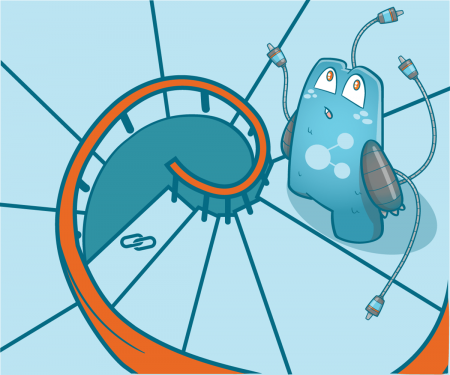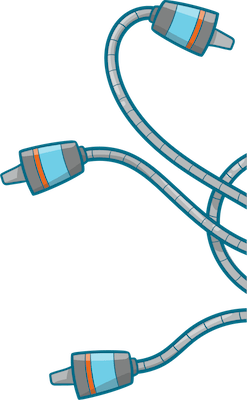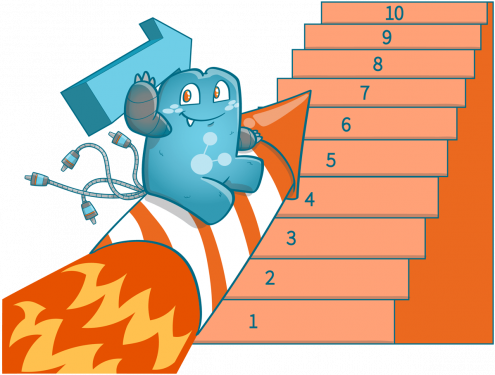Deep Linking for SEO: A Great Way to Step Up Your Linking Strategies

Deep Linking for SEO: A Great Way to Step Up Your Linking Strategies
In SEO, there are a lot of strategies you can use to boost a website’s rankings in search engines. One of these is deep linking, which can be incredibly useful for SEO and easy to execute at the same time.
A lot of site owners still don’t know the power that deep links/external backlinks can have for their websites. In this post, we’ll explore what deep linking is and how you can use it to your advantage.
Understanding Deep Linking for SEO
Deep linking is a process that involves creating links from pages on an external domain to specific pages on your domain. You might have heard of this process as backlink-building or backlinking. External web owners can do this through the use of text or images, and it’s an effective way to improve SEO because it directs link equity (the power of a link) to specific pages on your site.
The usual backlinking strategy is linking pages from other domains to your home page or any other page that can be found on the surface of your website structure.
It is different for deep links. This type of linking strategy targets pages or posts deep within your site structure.
When used correctly, deep links can help you rank higher in search engine results pages (SERPs), which means more traffic and conversions for your business.
Things to Consider when Using Deep Links
Relevance of Linking Pages
The relevance of your page to the page from another domain linking to you should be considered when using deep links. The link should be placed on a page relevant to the content of the page you’re targeting. This will ensure that the readers will get valuable information from your site, which helps improve your chances of getting ranked higher in SERPs.
Pick the Right Anchor Text
When deep linking, you also need to consider the anchor text you’re going to use. This is the text that will be used as the clickable link on your linking page. It’s essential to make sure that this text is relevant to the content of the page you’re targeting so that readers can get an idea of what they’ll find when they click on it.
You should also avoid using generic anchor texts such as “click here” or “read more.” These don’t provide any value to your readers and won’t help improve your SEO ranking.
Make Sure Your Site Is Crawled and Indexed
In order for deep links to work, you need to make sure that your website is crawled and indexed by search engines. You can do this by submitting a sitemap to Google Search Console or Bing Webmaster Tools. This will ensure that your website is included in their search results, which will help improve your site’s visibility and rankings.
Once you’ve made sure that all of your pages have been crawled and indexed, you can start with the deep linking process. You might want to start with your most important pages first and then work your way down the list.
The process is pretty simple: just find other web pages in your domain that are related to your most important pages and add links to them Make sure that you only add links to web pages that are high quality and relevant.
Quality of Link
On top of these considerations is the quality of the link you’re getting. The better the link’s quality (and relevance), the more value it will bring to your website.
Suppose your site is all about tech stuff, and one of your pages receives a hundred links. However, upon checking, the sites linking to you are about beauty and fashion. The links won’t do much for your SEO because they’re irrelevant to the content of your website.
This is why it’s essential to check whether or not you can place a link on a site that will be relevant to its content before deep linking. Otherwise, you’ll waste time and effort promoting links with no value at all, which can really hurt your rankings in SERPs over time.
Benefits of Deep Linking
Keeps Your Pages Organized & Structured
The main benefit of this strategy is keeping your site organized and structured correctly. Hence, there’s no confusion between internal links within your website structure.
This helps search engines like Google rank specific pages with deeper content more highly because it decreases user bounce rates (users leaving after visiting one page).
Aside from helping search engines understand your website faster and better, it also allows users from other websites to get relevant and valuable information, aside from what they’re currently viewing.
This means that your site adds value to the web as a whole and is not just limited to your pages.
Boosts User Experience & Bounce Rates
Deep linking helps bring more value to your readers (especially when you place relevant CTA buttons on each page). It also helps improve their overall user experience, which can decrease bounce rates for specific pages over time and help boost conversions and sales due to improved engagement with visitors/readers.
Makes Tracking Content Easier
Deep linking also makes tracking content much easier because you can see which pages are being linked to most often.
This information can be helpful in understanding what content is popular among your audience and which ones need more optimization. It can also help you develop new ideas for future blog posts or articles based on what readers are interested in.
Deep Links Can Be Used Alongside Other Strategies
Unlike other factors or aspects of SEO, deep links can be partnered with almost any strategy. You can use it along with link building, on-page SEO, and even content marketing.
The only thing you need to note is that deep linking will not solve all of your website’s problems for you. It should be used alongside other strategies so their combined effects will produce better results than if they were implemented separately or individually.
Link Equity Flow
The flow of link equity or link juice is a lot better than typical backlinks because link equity flow is not diluted across multiple domains. For backlinks directed to the home page, the link juice transferred to your target pages is already small since it has already passed through other levels on your site.
However, the juice is transferred directly from the linking domain for deep links. This results in better rankings and user experience since users only leave the site if they want to — not because of poor website content or structure.
Increases Rankings for Deeper Pages
This is because you’re not relying on links from other websites to help improve rankings but rather from within your own website content. This can be a slow process, but it’s definitely worth it in the long run if done correctly and with patience.
Provides Better Context
It is a lot better than typical backlinks that provide no context about what a reader will find after clicking on them from another domain. Deep links give some sort of preview, so readers know exactly where they’ll go after clicking on the link.
Creates More Engaging & Informative Web Pages
Last but not least, deep linking helps create more engaging and informative web pages. This is because it provides users with additional resources that they can explore if they’re interested in learning more about the topic you’re discussing.
Reinforcing Deep Linking with High-Quality Content Creation
Deep linking alone is already an excellent way to help improve your website’s SEO, but you can make it even better by reinforcing it with high-quality content creation. This means that you should focus on creating original and informative content that is worth reading and linking to.
This will not only help increase traffic to your site but also improve user engagement and encourage social shares. It’ll also help establish you as an authority in your field, which can lead to more business opportunities in the future.
Deep linking helps bring more value to your readers (especially when you place relevant CTA buttons on each page). It also helps improve their overall user experience, which can decrease bounce rates for specific pages over time and help boost conversions and sales due to improved engagement with visitors/readers.
The more engaging and informative your content is, the better it’ll be for both you and your readers in terms of search engine rankings as well as increasing traffic over time — all thanks to deep linking!
Deep Links and Internal Links
Once a visitor arrives at your website (from another domain), you can now present them with relevant and related information they can explore. You can provide them with a list of other pages on your website which you believe are interesting or might be helpful to someone who just landed on your home page. These are possible by using deep links from the homepage.
When you use deep links from your homepage, you can directly send a user to a page that might interest him. Aside from this, you can use deep links to target orphaned pages on your website, which means they can now start receiving organic traffic from your other high-performing pages.
This is made possible through the use of internal links. So, don’t forget to add internal links to your pages as well. This is an excellent way to help users explore your website and determine whether or not they should stick around for a little bit longer.
If you’re new to internal linking and looking to make your internal link building a lot easier, you can try out using the Internal Link Juicer. Visit our site to know more!






